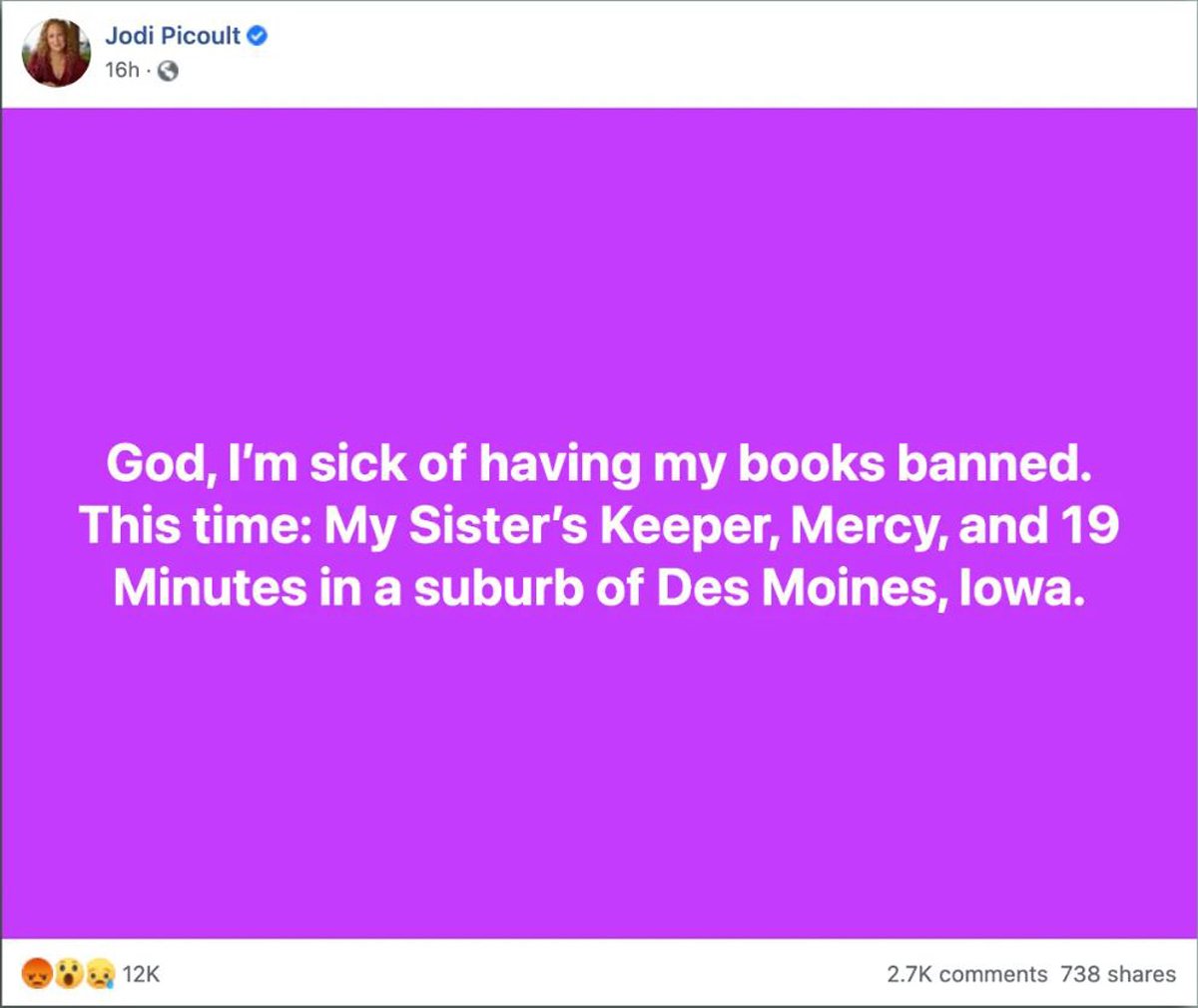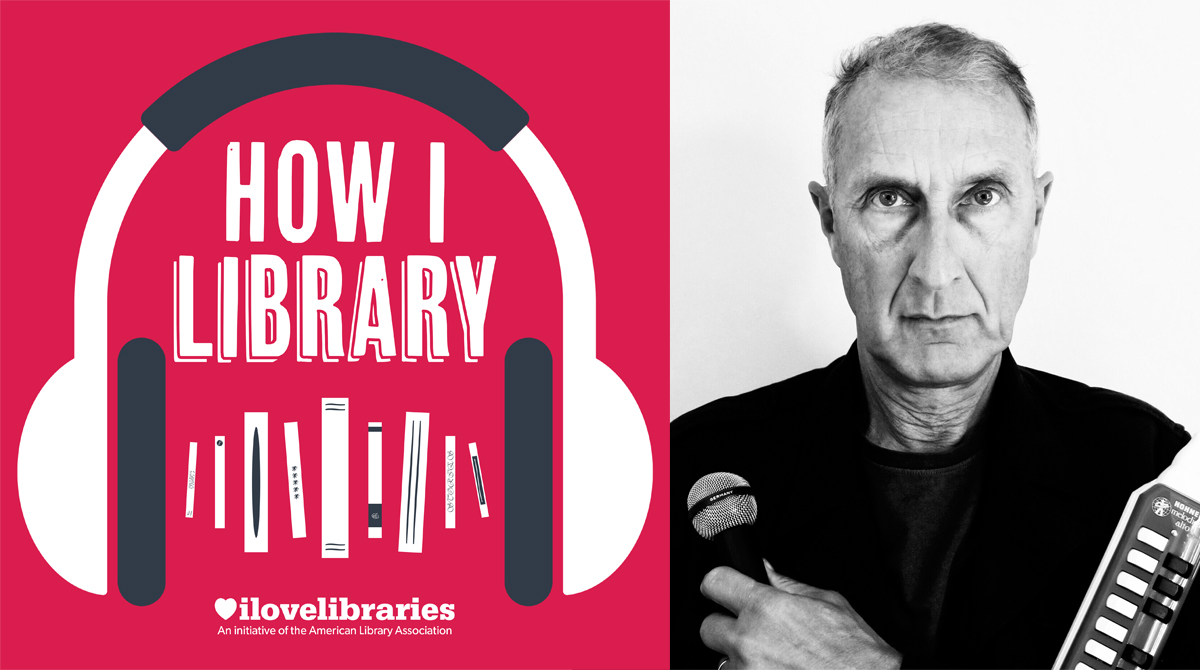Author Jodi Picoult is speaking out against her books being banned in Iowa.
The bestselling author of My Sister’s Keeper, Nineteen Minutes, and Small Great Things is no stranger to voicing opposition to her books being challenged and banned. In March, Picoult appeared on Good Morning, America to share her disappointment and anger after 20 of her books were removed from school libraries in Florida. (See video below.) And now Picoult is raising her voice against a school district in Iowa that is removing some of her works from its school libraries.
In late July, Urbandale Community School District made a list almost 400 books that were no longer to be allowed in classrooms and libraries. Teachers were told to remove the titles to comply with a new state law, SF 496, which both prohibits lessons related to gender identity and sexual orientation from kindergarten through sixth grade and also requires schools to remove all books that include sexual content.
The list included books that have been at the forefront of challenges in recent years-the graphic novel memoir Gender Queer by Maia Kobabe, All Boys Aren’t Blue by George M. Johnson, and Lawn Boy by Jonathan Evison-as well as classics like Joseph Heller’s Catch 22, George Orwell’s 1984, The Catcher in the Rye by J.D. Salinger, The Bluest Eye, Beloved, and Song of Solomon by Toni Morrison, and The Color Purple by Alice Walker. Picoult’s books on the list included the YA novel, My Sister’s Keeper, Mercy, and Nineteen Minutes, about the events following a school shooting.
In a July 31 Facebook post, Picoult wrote that she was “sick” of having her books banned.
The school district revised the list last week, removing books referencing sexual orientation and gender identity. Sixty-five books remain-including Picoult’s Nineteen Minutes. The district says those books contain “descriptions or visual depictions of sex.”
Alarmed by the escalating attempts to censor books? Here are five steps you can take now to protect the freedom to read.
1. Follow news and social media in your community and state to keep apprised of organizations working to censor library or school materials.2. Show up for library workers at school or library board meetings and speak as a library advocate and community stakeholder who supports a parent’s right to restrict reading materials for their own child but not for all
3. Help provide a safety net for library professionals as they defend intellectual freedom in their communities by giving to the LeRoy C. Merritt Humanitarian Fund.
4. Educate friends, neighbors, and family members about censorship and how it harms communities. Share information from Banned Books Week.
5. Join the Unite Against Book Bans movement and visit our Fight Censorship page to learn what you can do to defend the freedom to read in your community.


